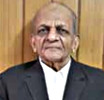
Advocate S. M. Surana has analyzed the recent judgement of the ITAT in DCIT vs. Hita Land Pvt Ltd which holds that the reduced period of six months for filing rectification applications applies to all rectification applications filed after 1st June 2016 even if the order sought to be rectified was passed before that date. The author has argued with cogent reasons that this view of the Tribunal is wrong and requires reconsideration
Section 254(2) of the Income-tax Act 1961 deals with the powers of the Income Tax Appellate Tribunal for rectification of its order. Section 254(2) before amendment w.e.f. 1-6-2016 read as under:-
"254(2) The Appellate Tribunal may, at any time within four years from the date of the order, with a view to rectifying any mistake apparent from the record, amend any order passed by it under sub-section (1), and shall make such amendment if the mistake is brought to its notice by the assessee or the Assessing Officer."








